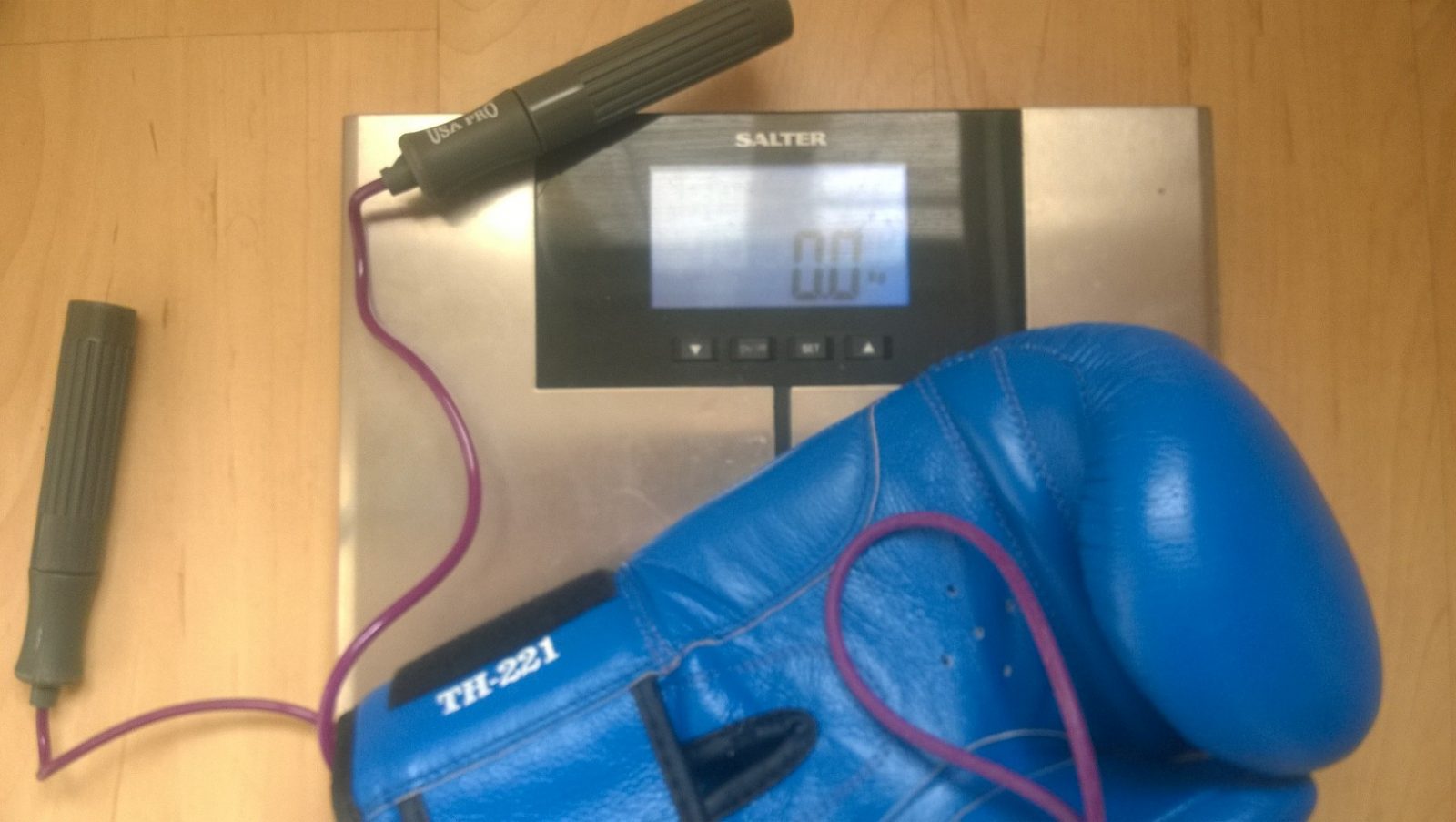If you like drama, BBC can create it for you. And sports drama is one of the most exciting things to watch. Extreme efforts, extraordinary sacrifices and even risking a life for victory, aren’t these the beautiful examples of human’s endeavour and great will? Or…consequences of lousy organisation, negligence, and ignorance?
These questions came to my mind when I watched BBC documentary devoted to extreme weight-cutting.
Plot
MMA fighter had to lose 7 kg in two days for the international fight in the O2 arena in London. He needed to weigh-in 61 kg; thus 7 kg was more than 10% of his pre-cutting weight (68 kg). Yes, it is a difficult task. So BBC closely followed him these days; to saunas, bathrooms, and toilets. Fighter ate glasses of ice, sweated and showed us his urine. Around him were devoted coaches and sports scientist from Liverpool John Moor university who bravely seated with the athlete in the sauna and informed us how life-threatening all this stuff is. Everybody worked. Fighter suffered enormously and shared his feelings with TV audience. The show was accompanied by sad music. Struggle, struggle, struggle. And he didn’t win. I am not scorning but, at the same time, I don’t feel sorry for him.
Something seems strange.
Actually, I am writing this post because I had a similar experience with my fighter ( kickboxer) some time ago. The weight-cut was even relatively bigger – from 77 to 67. What was different that everything was done without drama, suffering and sports scientists. And we won.
The question that I asked myself from the first minutes of watching the film was: Where the fighter was before? Why he and his team left weight-cutting for the last 48 hours? At the beginning, I thought that he received an offer to fight just two days before the event. Sometimes it happens in combat sports, especially with low-level fights. Though in such case organisers usually may relax strict weight category limits. However just after 5 min of watching I realised that my guess was wrong.
BBC actually started to film him three weeks before the fight. So he knew about the fight at least three weeks before. And I suppose even earlier; do you think that BBC jumped filming right from the moment fighter received the offer?
It can be done without suffering.
We had five weeks for preparation. The offer was to defend Russia Champion title, and it was entirely unexpected. We were not ready. My fighter did not train systematically at that moment and had excessive passion to the body-building exercises, so he was heavy, bulky and slow. Not the best conditions for a 67 kg category.
But he was eager to fight. Just a year before he unexpectedly won the title defeating the World Champion and many people considered that victory as an accident. So he really wanted to prove the opposite. We decided to accept the challenge.
Watching the documentary people may get an impression that weight-cutting is the main thing to do before the fight. Actually, it is not. The main thing is to be at the peak of your physical and mental form just at the right moment when the bell rings. So I worked out my weight-cutting strategy following my training plan not vice-versa, otherwise, your fighter may end up on the ring floor with the perfect body-weight.
There are different strategies for losing weight. Most of them, however, recommend flat and gradual loss throughout the whole preparation period. If we followed this strategy, we needed to cut 2 kilos in each of five weeks of training. That, in my opinion, doesn’t work because goals, workload and mental state should be different in every part of the preparation period. Yes, 2 kilos per week sounds not too much compared to 10 kg, nevertheless, it is still a serious number. So how your fighter supposed to be in perfect conditions if he always has a significant negative energy balance and impaired mental state?
First two weeks of our preparation was devoted to general physical conditioning. We ran a lot. The volume of work was high with relatively low intensity. We had two trainings a day. On the morning session, we run 7-8 km doing some exercise. On the second session, we ran the same distance and additionally did some boxing training in the gym. So basically, we run 15-16 km a day together with light boxing training. This workload created a significant energy deficit.
We revised fighter diet but did not make big changes. Just make it a little bit healthier and cut some cakes. I strongly advise against severe calories restriction. If you go below basal metabolic rate, your body may switch to the “safety mode.” It begins to spend less in rest and unwilling to exercise. So you may better allow cakes sometimes. That is not so many calories compared to workload expenditure, but it helps to “deceive” the body. Honestly, I think every athlete has his/her eating habits, and you have to think twice before insisting on changes. Our knowledge about nutrition remains limited, and we hear million advice and recommendations are continually changing. Listen to your athlete and follow common sense. In that instance, my fighter ate just slightly less than usual, and his calorie consumption covered his basic metabolic needs. So it was not tremendously cruel, and actually he was not so hungry. Of course, it wasn’t easy and his mood and emotional tonus slightly deteriorated. However, I expected this and preferred that it better happened on early stage. Additionally, the most challenging part of training was still ahead thus at the first stage significant energy disbalance didn’t combine with the severity of training. He lost 7 kg for two weeks.
At the second two weeks intensity increased. It was most difficult part of preparation. Interval runs and a lot of sparring workouts. However overall energy expenditure dropped. Mostly due to decrease in the volume of training (less running) and partly because his basal metabolic level dropped as well. When you have higher body weight, you are spending more calories to support this mass. Because he lost 7 kg, the need for supporting energy became less. So suddenly for him, it became enough food and feeling of hunger disappear! His mood went up and felt himself faster and stronger. Special training methods helped to build his confidence and needed mental state. He lost 2 kilos.
Last week was tapering. Sports games, tactical preparation, light sparring workouts. When we sat on the train leaving for the fight, he told me “Peter, I am feeling like a killer-machine”. I think this is a good mental and physical state for a fighter. A day before the fight we played football with local boys near our Moscow hotel. And he lost the last kilo.
He had won that fight after the 5-th round when his opponent refused to continue. He couldn’t cope with the high tempo and was utterly exhausted. The fight had been won mainly due to the excellent physical conditioning, in spite of the fact that losing significant weight in boxing often followed by decreasing in strength and endurance. In this case, however, it had been done mainly at the first stage and did not spread out to the whole preparation period. Sportsman had enough time to build up his “new” physical and mental conditions while remaining in a good mood and health. No drama.
No applause.
Why don’t I feel sorry for the fighter? Well, you have to be professional. First of all, try to keep yourself in shape all the time. At the end of the day, it is your job. If you are overweight but still remain inside your natural weight limits, then prepare yourself in advance. However if you want to cut weight immensely and to get into a category that is unnatural for you, you are seeking dishonest advantage and the risk is your problem. In just 24 hours between weighing and fighting, the athlete in the film ate and drank back 8 kilograms and in the ring was 69. Do not you think that this is a form of allowed cheating?
Ok, ok I understand that BBC and fighter from documentary created this film with the good intentions; to show how dangerous weight-cutting may be, and to condemn this practice. Possibly they achieved the opposite: brave hero struggled and fell honourably. People take off their hats and salute to the madness of the braves. Not me.


